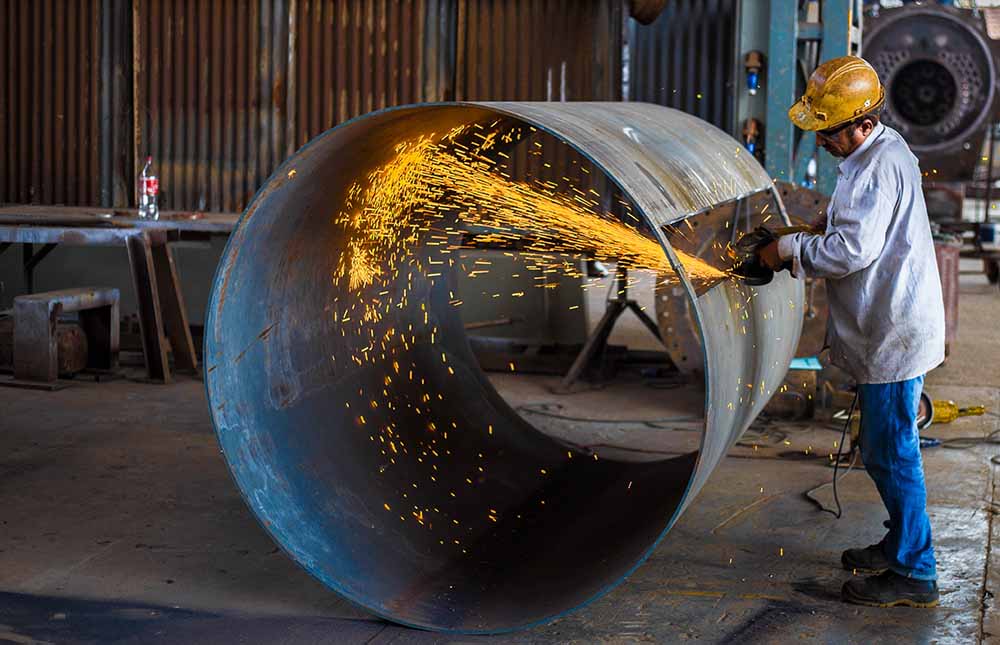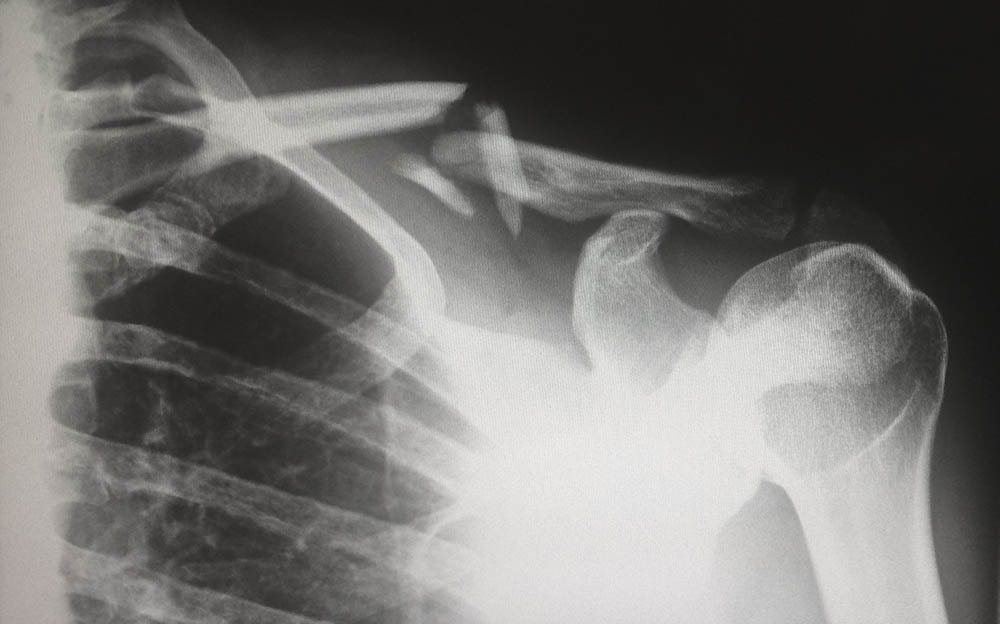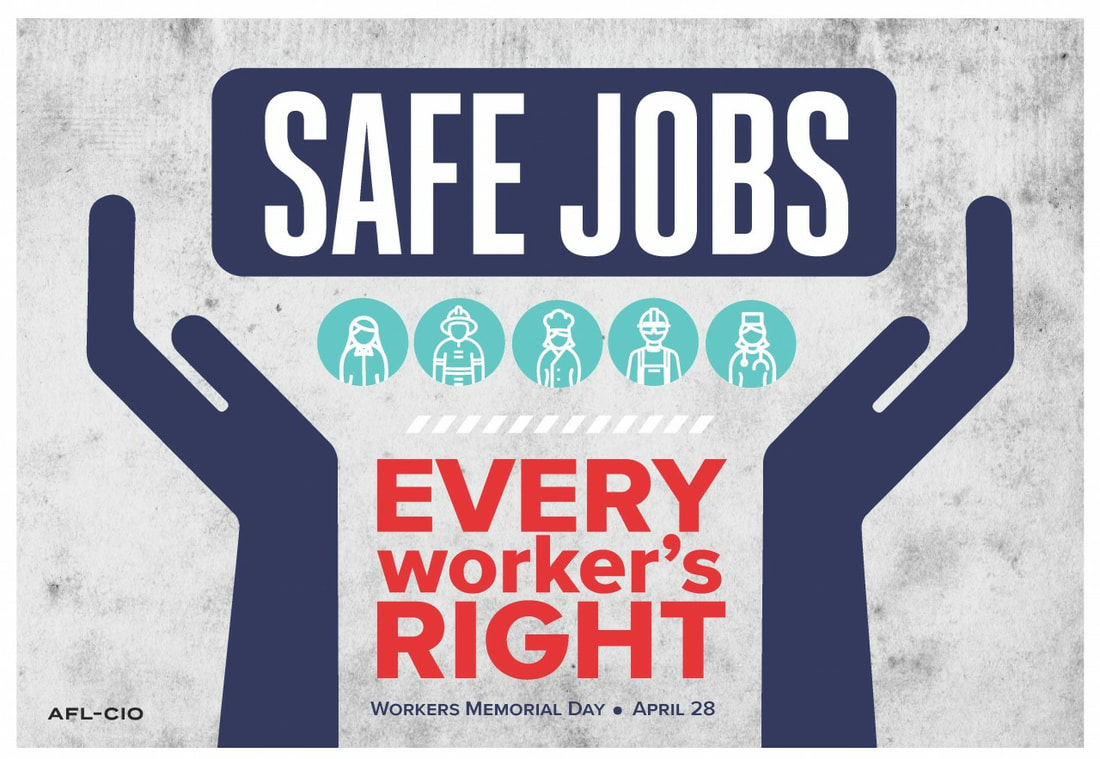|
When employees are injured at work, a recent study reveals that receiving more than a one week supply of opioids or two or more opioid prescriptions soon after an injury doubles a worker’s risk of disability at one year post injury, compared with workers who do not receive opioids.
The detrimental impact of prescription painkillers can continue after a worker returns to work, as anyone taking painkillers for for several weeks may already be dependent and developing tolerance to the drugs resulting in higher dosages. Not only do employers face increased workers’ compensation costs, but may also be held financially accountable for problems in the workplace and overdose deaths of injured workers related to opioid treatment. Although the prescribing opioids has come under increased scrutiny, prescription opioid use and misuse is still an issue that employers grapple with everyday. Nearly all employers believe taking opioids even as prescribed can impair job performance, not to mention common incidences of abuse or misuse, yet few employers have clear policies regarding prescription opioid use on the job:
If you have been injured at work contact the Des Moines workers’ compensation attorneys at Hemminger Law Firm for immediate assistance and your free consultation at 515-283-2116.
0 Comments
According to the National Safety Council, workplace fatigue is to blame for over 10 percent of all workplace injuries. Nearly 50 percent of workers are sleep deprived, with those grinding out the night shift, irregular shifts and overtime facing an increased risks of workplace injuries.
A recent report reveals that nearly every worker has at least one workplace fatigue risk factor and more than 80% have two or more. When multiple risk factors are present, the potential for injuries on the job increases. It is important for employers to recognize that safety performance decreases as employees become tired and certain workforce populations may be at increased risk.
Fatigue on the job has become a critical safety issue among the nation’s 24/7 workforce and it is important for employers and employees to recognize the risks. If you have been injured at work, contact the Des Moines workers’ compensation attorneys of Hemminger Law Firm for a free consultation at 515-283-2116. Workers’ compensation benefits are not typically considered taxable income. However, in many states, if you receive disability benefits through social security such as Social Security Disability Insurance (SSDI) or Supplemental Security Income (SSI), and are receiving workers’ comp benefits, the Social Security Administration may reduce your SSDI or SSI benefit, so the combination of workers’ comp and disability payments do not exceed the threshold or 80% of your average pay. The deduction will be offset by workers’ comp benefits, which are taxable by the amount SSDI or SSI was reduced.
Say for example, an employee’s average current earnings are $2,500. He or she is eligible for a monthly SSDI benefit of $1,500.00 and a monthly workers’ compensation benefit of $800.00, for a total of $2,300.00 per month. Because that amount exceeds $2,000, or 80% of his or her average earnings, SSDI may be reduced by $300.00 so the employee receives $1,200.00 from SSDI and $800.00 from workers’ compensation, for a total of $2,000.00. The employee will be taxed on the $1,200.00 SSDI amount and $300.00 of the workers’ compensation benefit, because the SSDI was reduced by $300.00. If you receive a lump sum, the settlement will be prorated to determine your monthly rate. Every dollar counts when you are receiving benefits such as workers’ comp and disability payments following a work injury, so it is important to work with an experienced workers’ compensation attorney to structure your settlement to minimize the offset of SSDI or SSI and reduce taxes to maximize what you take home. Contact the Des Moines workers’ compensation law offices of Hemminger Law Firm today for assistance. Our attorneys understand what is at stake for individuals and families depending on workers’ compensation benefits and will provide you with a strategy to yield the best results. Whether you are just getting started or have been denied workers’ compensation benefits, give our Iowa workers’ compensation team a call at 515-283-2116 for a free consultation today. When someone is injured at work, their employer may choose where the employee goes for medical attention. However, if there is a disagreement regarding the doctor’s evaluation, you, the insurance company, the state, and even the employer may request an independent medical evaluation or IME.
If your employer asks for the IME, they are responsible for medical expenses you incur including transportation to and from the exam. If you refuse to participate in an IME, you may forfeit your right to compensation under the law. If, on the other hand, you as the employee requests an IME, then you will have to cover the exam fee, but may later be able to request reimbursement from the employer if it is a compensable injury. Independent medical exams can affect your benefits of course. An independent exam will speak to your level of impairment, whether it is temporary or permanent, and what the appropriate course of treatment is. A doctor’s opinion can be used as testimony in your case, so it can either work for you or against you. It is important to consult an attorney if you are asked to participate in an IME following a work injury or if you are considering one because you believe you are not receiving appropriate treatment or have been misdiagnosed. If your employer and the insurance company are requesting an IME, it can be anything but independent because they are the ones making the referrals and paying the doctors. If you are seeking an IME yourself, the doctor you select can make all the difference in your case so it is important to see one familiar with Iowa workers’ compensation law. An experienced Iowa workers’ compensation attorney can provide you with referrals and help you prepare for your independent medical evaluation. Your attorney will ensure that the doctor has all the relevant information and documentation to present a complete picture of your condition. Because your time in front of the doctor is limited, it is critical that they understand your injury and associated impairment. If you have been asked to have an independent medical exam or feel that you need a second opinion after seeing your employer’s doctor, contact the Iowa workers’ compensation offices of John T Hemminger first at 515-283-2116. We have helped many Iowa workers get the medical treatment and compensation they need to recover and we welcome the opportunity to assist you too. In many states the workers’ compensation system allows employees to see their regular doctor, however in Iowa, the employer has the right to choose the medical provider for employees who are injured or become ill at work.
Although you may not be able to see your regular doctor for a work related illness and injury under Iowa workers’ compensation, your employer does have a duty to provide prompt, reasonable care without causing you any major inconvenience. Furthermore, all medical expenses for your work injury or illness provided by the employer approved doctor will be covered. Of course there are situations where a worker can change or choose their doctor. This option typically arises when the employer approved care is not appropriate or sufficient, you have concerns that you have been misdiagnosed or treated, and in situations where the provider is at too great a distance from your home. Depending on the situation, you may want to request a different provider altogether or at least get a second opinion if you have any concerns about a diagnosis or suggested treatment. Your health and the health of a family member is important and receiving the best care can make all the difference following a workplace injury. If you are considering a change in providers following a work injury or illness, it is best to work with an experienced workers’ compensation lawyer to help you prepare and present your case for alternative care. The Des Moines workers’ compensation attorneys of John T. Hemminger have helped many clients navigate the workers’ compensation system successfully to improve their overall care and the benefits they receive. Contact our offices today for a free consultation of your case at 515-283-2116. Tree trimming and tree removal can be a dangerous occupation with hundreds of tree workers killed or injured every year. According to the Tree Care Industry Association, tree worker injury accidents data spanning several years suggests that tree worker injuries and fatalities are more of a result of complacency rather than ignorance.
In support of this claim, the association notes that the typical fall victim was unsecured, the typical struck-by victim remained in the drop zone, and the typical electrocution victim violated minimum approach distance (MAD) and made contact with an electrified power source through a tool, a boom, a vehicle or other object. The consistently high number of incidents in tree care industry in the last few years has caught The United States Department of Labor, Occupational Safety and Health Administration’s (OSHA) attention. OSHA seeks to raise awareness of tree trimming and removal safety hazards to which tree trimmers and tree care industry workers are exposed to on a daily basis in order to reduce the number of avoidable injuries and to reduce tree worker fatal injury accidents. Employers have been put on notice to properly assess work sites to identify potential hazards such as live power lines, clearly demarcate drop zones to prevent struck by injuries, and require employees to wear full safety protection regardless of whether the workers are on the ground only or climb or they are lifted in aerial lifts and buckets. Furthermore, tree workers should be aware of safety hazards and receive ongoing safety training to promote safe practices to reduce preventable tree worker injuries. Tree Worker Injury Accidents Lawyers If you were injured in tree worker injury accident and your employer’s work comp insurance company denied your claim for work comp benefits or your work comp benefits do not fully cover your recovery, then your employee rights may have been violated. It is important to seek the assistance of an experienced Iowa workers’ compensation benefits attorney to secure the income and reimbursement you need to fully recover from your work injury. Call 515-283-2116 to schedule a free initial consultation with John T. Hemminger. Despite the promise to a safe and healthful work environment spelled out in the Occupational Safety and Health Act, many workers are still injured every year while performing their job duties. Tomorrow, April 28, is Workers’ Memorial Day, an annual event to remember workers who have lost their lives on the job.
Workers’ Memorial Day is an opportunity to raise awareness regarding the preventable nature of many workplace accidents, encouraging employers to provide the necessary equipment, training and oversight to keep workers safe and to help their employees recognize hazards in the workplace to prevent injuries and fatalities. Events commemorating victims of work-related accidents and diseases will take place this weekend in Iowa and all around the world to promote safe and healthful work environments for workers across the globe. This morning, Iowans, including families and friends of those killed in workplace accidents, gathered to pay tribute at the State Capitol. Labor Commissioner Michael Mauro reflected on the 32 Iowans that died last year in injuries sustained at work saying “Workers Memorial Day is a day to honor and remember Iowans who have died in Iowa’s workplaces and serving in our military in the past year. This is also a day to reflect on the lives that were lost and to renew our commitment to workers safety and health in the workplace. In 2016, nearly 5,000 workers were fatally injured on the job. Of those fatalities, over 20 percent worked in the construction industry, accounting for 900 lost lives. Although the Occupational Safety and Health Administration (OSHA) of the U.S. Department of Labor has worked to reduce the number of workplace fatalities through the implementation of safety and enforcement programs, construction workers still face incredible danger every time they go to work.
Of course, no one can predict when a workplace accident will occur, however, workplace accidents involving construction workers fall into 4 main categories: falling, struck by injuries, electrical and caught between an object. Des Moines Ladder Fall Accidents Falling accidents are the number one cause of construction injuries and fatalities. In fact, nearly 1 in 3 work fatalities are attributed to falls. Construction workers often are asked to work on elevated areas, sometimes lacking safety gear and training. Falls from rooftops, ladders and scaffolding, or other structures or equipment is all too common. Iowa Construction Zone Struck By Injuries Struck by injuries are also prevalent in construction zones. These types of injuries may be the result of falling or swinging equipment, vehicle strikes or falling debris. Electrocution Risks at Construction Sites Electrocution is an ever present risk. Construction workers may be charged with working on electrical wiring specifically or just be surrounded by live electrical lines on a project. Nearly 100 workers suffered fatal injuries due to electrocution in 2016 alone. Construction Equipment Accidents Construction workers work with various equipment on a work site, some of which are stationary and others that move objects from point a to b. Severe injuries are caused when workers are compressed by equipment or objects on site, such as structure collapses or being pinned by equipment. Contact Des Moines Construction Worker Injury Lawyers When workers are hurt on the job, few know where to turn for help. The Des Moines construction worker injury lawyers of John T. Hemminger have decades of experience assisting construction workers in workers’ compensation, personal injury lawsuits and helping family members in wrongful death claims. Our attorneys have a proven track record of helping those injured in workplace and job site accidents get the compensation they deserve when they need it the most. If you, or a family member is hurt at work, call our Des Moines workers’ compensation law office for a free and confidential consultation today at 515-283-2116. If you are injured at work, typically a workers’ compensation claim is your only recourse to obtain reimbursement of your medical expenses and lost wages. In other words, you cannot sue your employer to recover monetary damages above and beyond the benefits provided by Iowa’s workers compensation.
Iowa Workers’ Compensation Versus Personal Injury Claims – Third Party Negligence There are some situations, however, when a personal injury claim might be appropriate when an employee is injured while working. Commonly referred to as a third party claim, when someone other than you employer or coworkers are involved in your injury accident, you may be able to sue that third party in court for damages. For example, if get into a car or truck accident during the workday, you may have a claim against the at-fault driver. Or, if you are hurt while working at the premises of a third party as part of your work duties, you may be able to sue the third party. This might include slips and falls due to hazardous conditions at a construction site or other dangerous conditions that resulted in your injury. The advantages of a third party claim is that you can recover damages to the full extent of your injuries. Unlike workers compensation, personal injury claims allow you to recover damages in addition to medical expenses and lost wages such as pain and suffering, mental anguish and emotional distress, and sometimes punitive damages if the case is particularly egregious. Do I Have to Pay Back Workers’ Compensation if I Win My Personal Injury Suit? Of course, if you are successful in your third party claim, any payments that were made by workers’ compensation insurance for medical expenses and the like will have to be reimbursed. The concept of subrogation is that your insurance company has a right to be indemnified, or “paid back” for the bills they have paid on your behalf. What the workers’ compensation insurer will be reimbursed can be complicated. In some states, if the employer is even partially at fault, the judge assigns a percentage to that which will then be deducted from the lien. A judge may also take into account attorney’s fees and other expenses related to the case, requiring the workers’ compensation carrier to pay toward those costs too. In a personal injury lawsuit, common damages include medical expenses, lost wages and pain and suffering. Workers’ comp insurers cannot take damages from an unrelated category to pay for its lien for reimbursement of another category. For example, if you are awarded pain and suffering damages or even punitive damages in your personal injury case, the workers’ comp insurer cannot take those to pay for the reimbursement of medical expenses or lost wages. It boils down to ‘staying in their lane’. Contact an Experienced Iowa Personal Injury | Workers’ Compensation Lawyer for Help If you or a family member is injured at work, it is important to discuss your options with an experienced Iowa workers’ compensation, personal injury attorney. When a loved one is hurt, medical expenses can add up quickly, especially if someone is unable to work. It is crucial to get all of the workers’ compensation and disability benefits you are entitled to, which sometimes requires some legal teeth. If you are hurt due to the negligence of a third party, you may be able to pursue damages to the full extent of your injuries, reducing the financial impact of a work injury. Contact the Des Moines Iowa workers’ compensation, personal injury law offices of John T. Hemminger for a free consultation to determine the best strategy for your unique circumstances at 515-283-2116. According to the Bureau of Labor Statistics, in 2016, there were over 5,000 workplace fatalities, a seven percent increase over 2015.
One in four workplace fatalities were related to transportation incidents, the leading factor in lost lives, followed by violence in the workplace which rose 23 percent last year. The opioid crisis leaves no stone unturned and drug related fatalities in workplaces across the country have also increased. In fact, drug related fatalities at work have risen 25 percent since 2012. Unfortunately, 2016 marks the third consecutive increase in worker fatalities, and the third highest since 2008. For many groups of workers in the country, work is becoming more dangerous and deadly. Statistics released by the National Safety Consul reveal that not only certain types of workplace accidents lead to fatalities, but also that some groups are more vulnerable than others :
If you or a family member is injured at work, contact the Iowa workers’ compensation personal injury law offices of John T. Hemminger for assistance. We can help you get the benefits you need to pay for medical expenses, lost wages and disability in the event you cannot return to work or are limited in your professional duties due to your injuries. If you are dealing with the loss of a loved family member who suffered a fatal work accident, we will work to protect children and family members in need of financial help. Contact our Des Moines offices today at 515-283-2116. |
What We Do Really Well Workers' Compensation
Motor Vehicle Accidents
Personal Injury
Nursing Home Neglect
Categories
All
Archives
April 2019
|
- Home
- Attorney Profiles
- Firm Overview
-
Personal Injury Practice Areas
- Workers' Compensation
- Motor Vehicle Accidents
- Personal Injury
-
Nursing Home Neglect
- Nursing Home Neglect Overview
- Nursing Home Injuries Info
- Negligence in the Nursing Home
- Nursing Home Injuries FAQs
- Nursing Home Injuries Overview
- Nursing Home Injuries Resources
- Proving Damages in Nursing Home Abuse
- Protection of Nursing Home Residents in Iowa Nursing Homes
- Nursing Home Resident Rights
- Social Security Disability
- Client Reviews
- Contact Us
- Home
- Attorney Profiles
- Firm Overview
-
Personal Injury Practice Areas
- Workers' Compensation
- Motor Vehicle Accidents
- Personal Injury
-
Nursing Home Neglect
- Nursing Home Neglect Overview
- Nursing Home Injuries Info
- Negligence in the Nursing Home
- Nursing Home Injuries FAQs
- Nursing Home Injuries Overview
- Nursing Home Injuries Resources
- Proving Damages in Nursing Home Abuse
- Protection of Nursing Home Residents in Iowa Nursing Homes
- Nursing Home Resident Rights
- Social Security Disability
- Client Reviews
- Contact Us
Located in South Des Moines, Iowa, the Hemminger Law Firm provides experienced personal injury representation for clients throughout Central Iowa, including Polk County, Warren County, Marion County, Lucas County, Madison County and Dallas County, as well as the cities Cedar Rapids, Ames, Marshall Town, Fort Dodge, Indianola, Chariton and Ottumwa.
© 2024 Hemminger Law Firm. All rights reserved.
Site powered by Digital BusinessEdge








